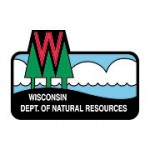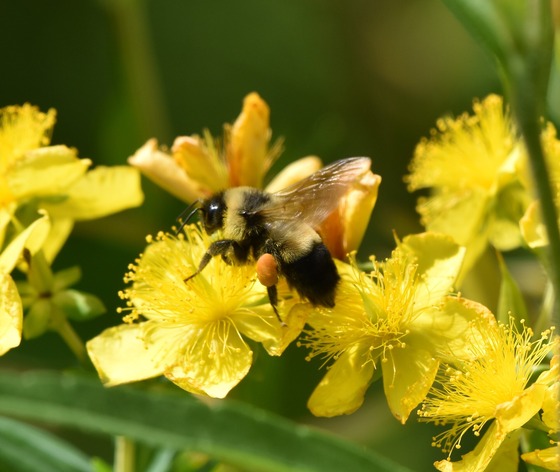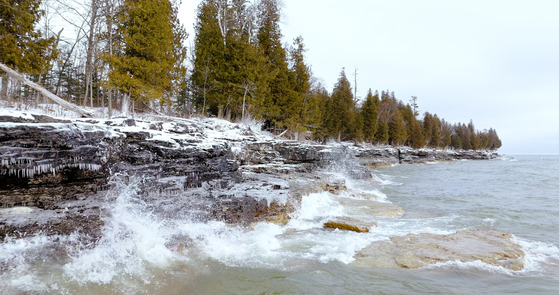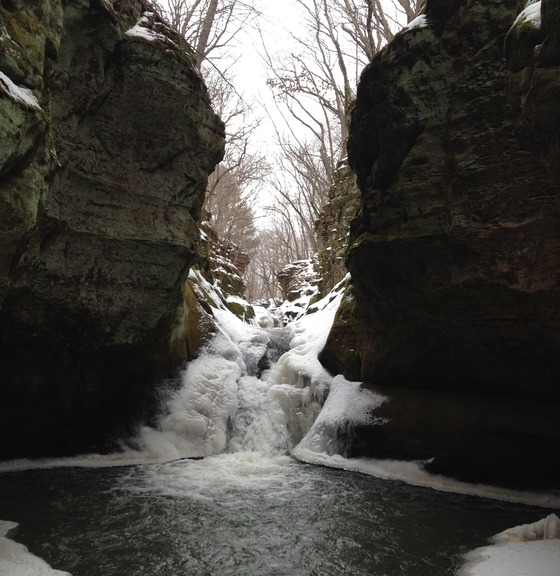2024 Ojibwe Spring Fishing Season Starting Soon
Wisconsinites Reminded Of Protected Tribal Right To Fish
MADISON, Wis. – The Wisconsin Department of Natural Resources (DNR) reminds Wisconsinites of the protected tribal right to fish in certain Wisconsin waterways and the legal consequences they could face if found interfering with that right during the upcoming Ojibwe spring fishing season.
“The Wisconsin DNR fully supports Ojibwe sovereignty and treaty rights,” said DNR Deputy Secretary Steven Little. “We encourage tribal citizens to get out and exercise their treaty rights. Likewise, we remind the public that it is illegal to interfere with this right and have zero tolerance for harassment.”
“Tribal citizens must be able to exercise their right to hunt, fish, and gather in the Ceded Territories safely,” said Attorney General Josh Kaul. “If there is any unlawful interference with these rights, please contact local law enforcement or the Great Lakes Indian Fish and Wildlife Commission (GLIFWC).”
“For Ojibwe families, the spring season is a brief opportunity to harvest walleye and other species from Ceded Territory waters,” said Jason Schlender, GLIFWC Executive Administrator. “But the benefits of eating healthy meals for Ojibwe communities lasts throughout the year, from household kitchen tables to elder nutrition programs.”
Part of the collaboration between the DNR and the Ojibwe tribes includes working together to set a safe harvest limit for every walleye and muskellunge lake in the Ceded Territory. These safe harvest limits ensure that the walleye and muskellunge harvests do not adversely affect each lake’s fishery.
There are 2,300 lakes larger than 25 acres in the Ceded Territory, including 919 walleye lakes and 623 musky lakes. Each year, the Ojibwe tribal citizens fish a portion of these lakes outside of reservation boundaries during their spring harvest season. Tribal citizens rely on these lakes to preserve their cultural heritage and also act as a vital food source for their communities.
All fish that are taken are documented each night by a tribal clerk or warden who are present at boat landings. Once the declared harvest is reached in a given lake, no additional permits are issued for that lake, and the harvest ends. The Great Lakes Indian Fish & Wildlife Commission (GLIFWC) provides daily reports to the DNR for all fish harvested off-reservation by spearing or netting in the Ceded Territory.
TRIBAL RIGHTS
In the mid-1800s, the Lake Superior Ojibwe Tribes ceded more than 22,000 square miles of tribal territory across Northern Wisconsin, including all or parts of 30 counties through a series of treaties with the United States federal government.
When the Ojibwe ceded lands to the federal government, they maintained their rights to hunt, fish and gather off reservation land within the Ceded Territory. However, after Wisconsin became a state, state and local officials frequently assumed statehood superseded Ojibwe treaty rights and regulated or prohibited off-reservation hunting, fishing, and gathering by tribal members.
In 1983, a federal court ruling reaffirmed the Ojibwe had the right to hunt, fish and gather off-reservation in the Ceded Territory, including the right to catch fish by spearing and netting.
INTERFERING WITH TRIBAL RIGHTS
It is illegal to interfere or attempt to interfere with tribal citizens who are exercising treaty rights, including the spring harvest of walleye. Prohibited conduct against any tribal citizen includes, but is not limited to, stalking, obstructing access to lakes, recklessly operating watercraft, creating hazardous wakes, threatening violence and committing acts of violence.
These treaties and court decisions remain in place today, ensuring the Ojibwe can continue to exercise their right to hunt, fish and gather off-reservation in the Ceded Territories. To assist in regulating those activities, 11 Ojibwe bands have formed GLIFWC, which provides fully trained wardens who patrol the Ceded Territory to make sure tribal citizens are following applicable tribal conservation laws. Violations are cited into tribal courts for prosecution. Ojibwe spearing and netting are carefully monitored and regulated by staff from both GLIFWC and the Wisconsin DNR.
Anyone violating tribal rights could be charged under several Wisconsin laws, fined up to $10,000 and sentenced up to 9 months in prison. Additionally, any tribal member whose rights are violated may bring civil action for damages and seek a restraining order.
WISCONSIN’S HATE CRIME PROVISIONS
Wisconsin law includes hate crime penalty enhancements for many crimes if they are committed, at least in part, based on a “belief or perception regarding the race, religion, color, disability, sexual orientation, national origin or ancestry of” the victim. For example, when a hate crime penalty enhancement applies to a felony, the maximum fine can be increased by up to an additional $5,000 and the maximum prison term can be increased by up to an additional 5 years.
REPORTING TRIBAL RIGHTS INFRINGEMENT
If you have witnessed or been subject to infringement of tribal rights to hunt, fish and gather that is active and involves physical harassment or a verbal threat of physical harm, report that to local law enforcement immediately by calling 911.
The Great Lakes Indian Fish & Wildlife Commission (GLIFWC) also recommends reporting any instances of infringement in order to maintain a record and provide appropriate follow up. Call GLIFWC Enforcement at 715-685-2113 to document an incident.
NOTE: This press release was submitted to Urban Milwaukee and was not written by an Urban Milwaukee writer. While it is believed to be reliable, Urban Milwaukee does not guarantee its accuracy or completeness.
























